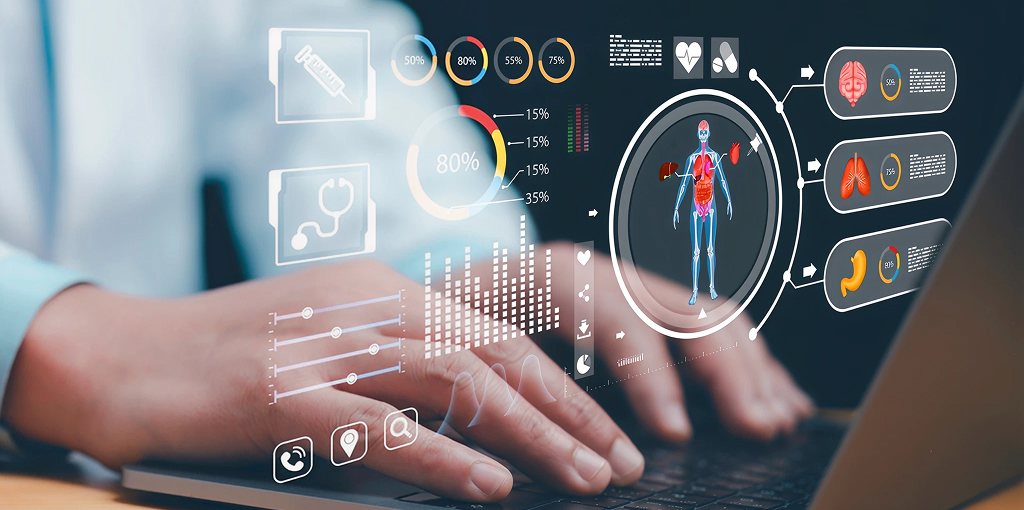In today’s fast-paced, digitally connected world, patient engagement has become a vital component of high-quality healthcare. Patients no longer view healthcare as a series of appointments—they expect continuous, responsive communication, just like they receive from banks, airlines, and retailers.
Enter AI-powered healthcare communication systems, especially chatbots and virtual assistants. These intelligent tools are revolutionizing how hospitals, clinics, and providers interact with patients - 24/7, across platforms, and at scale. With AI, healthcare is moving from reactive to proactive, enabling organizations to deliver timely, personalized, and efficient communication that empowers patients and improves care outcomes.
Why Patient Engagement Matters

Patient engagement is more than a buzzword—it's a strategic imperative. Studies show that engaged patients are more likely to follow care plans, return for follow-ups, manage chronic conditions better, and report higher satisfaction.
But engaging patients isn’t easy. Manual communication methods—phone calls, in-person visits, and even email—are time-consuming, expensive, and inconsistent. This is where AI steps in to fill the gap.
What AI Brings to Healthcare Communication

AI-powered solutions offer healthcare providers the ability to scale communication, provide instant support, and personalize interactions in a way that humans alone can’t achieve around the clock.
Here’s what AI can do:
1. 24/7 Availability
AI chatbots don’t need breaks. They can answer common patient questions, book appointments, provide pre-visit instructions, and offer medication reminders at any time of the day.
🔹 Example: A patient wondering about post-op care instructions at midnight can get accurate, timely information via a chatbot instead of waiting until morning.
2. Instant Response & Triage
AI chatbots can quickly triage symptoms, suggest next steps, or redirect users to emergency services when necessary. This reduces the load on nurses, receptionists, and helplines.
3. Multilingual Support
AI-driven systems can offer multilingual communication, ensuring inclusivity for diverse patient populations, especially valuable in urban and multicultural regions.
4. Personalized Interaction
AI uses data from past visits, demographics, and conditions to personalize messages—whether it's a flu shot reminder, dietary suggestion, or follow-up scheduling.
5. Reduced No-Shows and Late Appointments
AI-based SMS or WhatsApp reminders, coupled with smart rescheduling options, can drastically reduce missed appointments and improve clinic efficiency.
Where AI Chatbots Fit in the Patient Journey

AI chatbots can be embedded throughout the patient lifecycle—from awareness to aftercare. Here’s how:
Before the Visit
- Answer FAQs about services, insurance, or conditions
- Schedule appointments or send pre-visit checklists
- Help patients prepare for procedures
During the Visit
- Manage digital check-ins
- Guide patients within hospital premises (navigation bots)
- Collect real-time feedback
After the Visit
- Send medication reminders
- Provide rehabilitation content or dietary guidance
- Enable follow-up scheduling
- Monitor symptoms post-discharge and alert staff when needed
Benefits for Providers and Patients
For Providers
- Saves staff time by automating repetitive queries
- Reduces administrative costs
- Increases patient retention and loyalty
- Provides rich data insights for better care planning
For Patients
- Always-on access to health information
- Faster answers, less frustration
- Personalized care experience
- A greater sense of control and involvement in their care
Real-World Use Cases
Hospitals
Large hospitals use AI to automate patient intake, triage support, and appointment reminders. It reduces bottlenecks and allows clinical staff to focus on urgent care needs.
Clinics
Smaller practices leverage chatbots for post-consultation support and prescription tracking, ensuring continuity of care even without 24-hour staff.
Telehealth Providers
AI assistants streamline the virtual care process—scheduling, documentation, patient education, and post-visit engagement are all enhanced by smart automation.
Challenges & Considerations
While AI offers vast potential, providers must consider:
- Data privacy: Ensure compliance with HIPAA, GDPR, and other health data regulations.
- Transparency: Clearly indicate when patients are interacting with a bot vs. a human.
- Escalation protocols: Make it easy for patients to speak to real professionals when necessary.
- Bias management: Train AI on diverse datasets to ensure fair and inclusive communication.
The Future of Patient Engagement is Hybrid

AI is not here to replace human care—it’s here to augment it. The ideal model is hybrid: where AI handles routine tasks, and humans step in for empathy, complexity, and critical thinking. As AI grows smarter and more intuitive, its role in healthcare communication will only expand—bridging gaps, improving outcomes, and making healthcare more humane, accessible, and efficient.
FAQs
1. Can AI chatbots replace human doctors in communication?
No, AI enhances but doesn’t replace doctors. It handles routine tasks, freeing up professionals for high-value patient care and human interaction.
2. Are AI-powered healthcare chats secure and private?
Yes, when properly designed, they follow HIPAA and GDPR guidelines, ensuring data encryption, privacy, and secure communication.
3. What can a healthcare chatbot typically do?
It can answer FAQs, schedule appointments, send reminders, triage symptoms, deliver care plans, and guide post-treatment instructions automatically.
4. Are patients comfortable interacting with AI bots?
Surveys show rising comfort levels—especially when bots are transparent, helpful, and fast. Trust improves with consistent, accurate information.
5. How can clinics implement AI for patient communication?
They can use chatbot platforms, integrate AI with EHR systems, and partner with healthtech providers offering HIPAA-compliant solutions.




